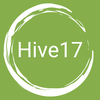|
Neuroscience has been becoming very interesting in explaining how our brain works - and hence how we behave. This article by Paul J. Zak took this practice and explained trust - not only how it works in the brain; also how we can influence this system as a leader.
Why is trust important? Comparing to low-trust companies, people at high-trust companies report:
Zak went through 10 years of experimenting this topic and discovered the following. Our brain is producing a chemical called oxytocin; when more of this substance is present in our brain, we tend to be more trustworthy. This means, the amount of trust we put into the people around us is influenced by the presence of oxytocin. His research went further and he experimented what are the levers that influence the level of oxytocin in our brains. How can we as leaders create an environment for trust - proven by neuroscience. Here are the eight findings.
How are you struggling to become a trustworthy leader? Share your story. Thank you, Daniel Benes, for sharing the article:
0 Comments
Leave a Reply. |
Subscribe
Receive our monthly themed summaries of our thoughts: click! TimTim is a change practitioner in the area of innovation and excellence. He is working with teams to accelerate innovation, collaboration and agility. Categories
All
Archives
July 2024
|


 RSS Feed
RSS Feed